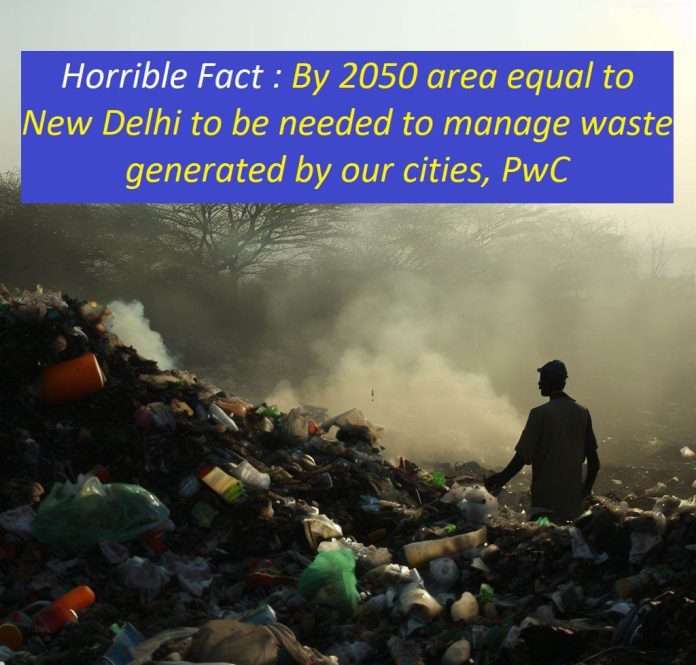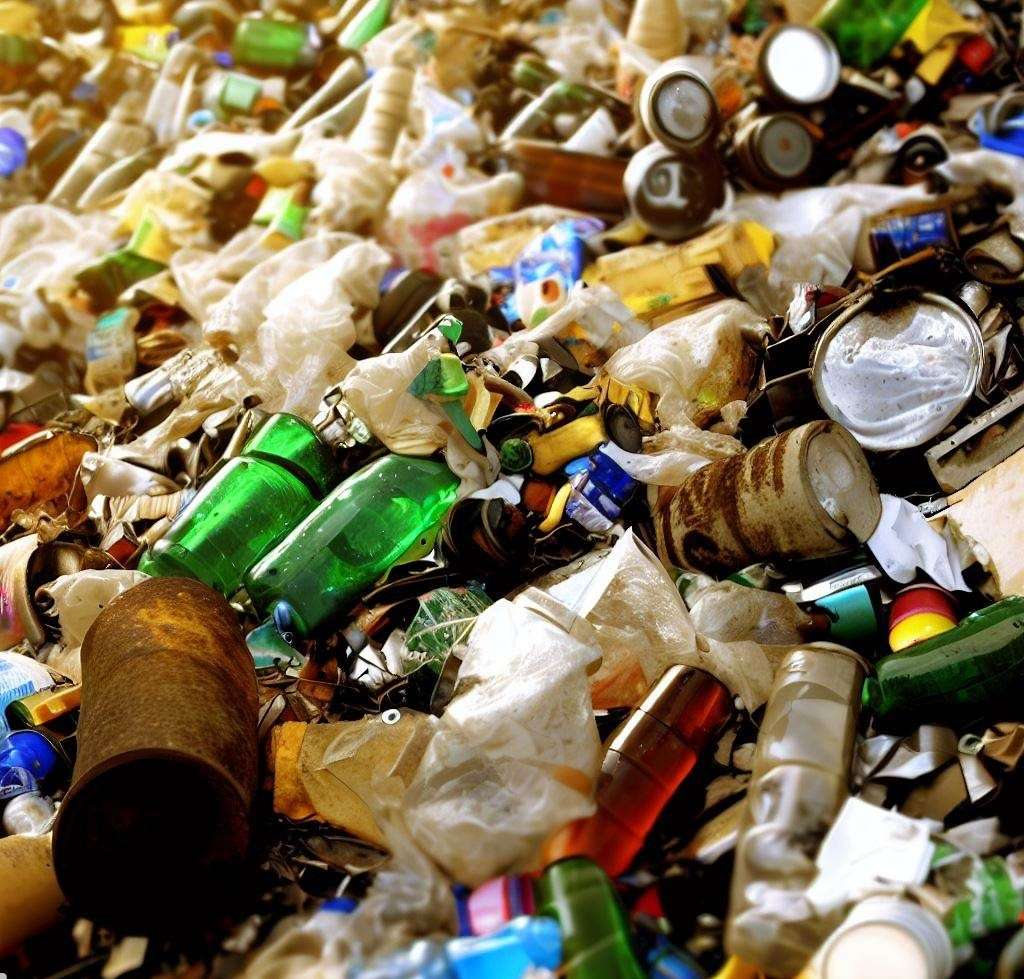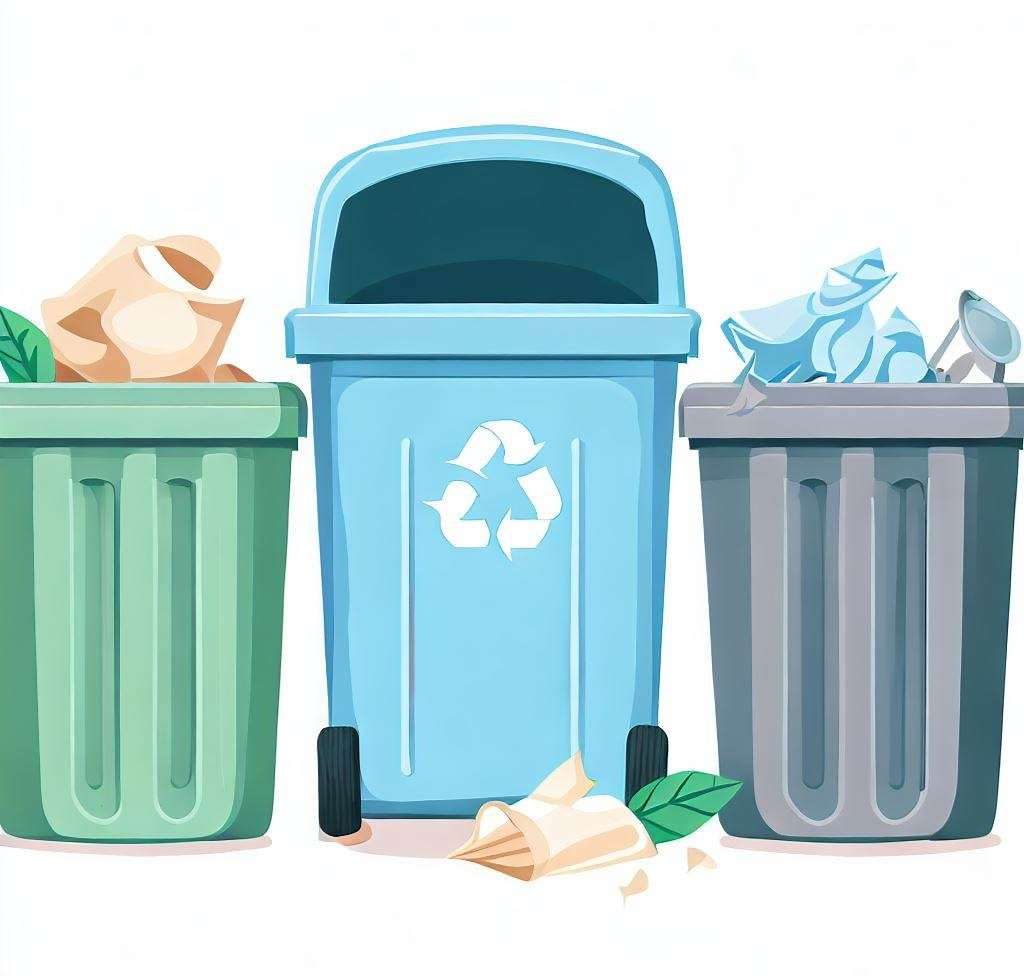The issue of waste management is one of the most pressing problems faced by urban India. Over the years, we have gotten accustomed to dumping our waste into landfills that have been demarcated for this. As most of this waste is non-biodegradable, it keeps piling up in these landfills for decades. With greater consumption by people, the municipal authorities start needing additional land to create more landfills.
Consider this statistic: According to a study by PwC, by the year 2050 an area equal in size to the city of New Delhi will be needed in order to deal with the waste generated by our cities.
What does this say for our future generations? That we will need a landfill as big as our capital city just to dump waste? In urban India where lots of poor people live homeless, is it justified to waste all this land just for dumping rubbish?
According to 2016 CPCB report, indian produced some 52 million tonnes of waste annually, which makes its 0.144 million tonnes each day. Out of this roughly 23 % is processed—taken to landfills or disposed off using different menthods. Thanks to a growing middle class, India’s consumption of plastic is expected to double in just about 5 years. How, then, do we deal with all this waste? The answer lies not just with the government but in diligent efforts made by every citizen of the country.
Segregation of waste
In 2016, the Indian government introduced new rules for the segregation of urban waste. In order to facilitate better disposal, waste items are categorized into 6 categories namely:
- Solid waste,
- Biomedical waste,
- Plastic waste,
- Electronic waste,
- Waste resulting from Construction and Demolition sites
- Hazardous waste.
The government has also notified regulations about dealing with each of these 6 categories of waste. The problem, however, is that none of these rules can be effectively implemented without the co-operation of citizens. Take household waste for instance. Despite existing rules, most urban households fail to segregate their dry waste and wet waste everyday before disposing it. Families tend to mix paper, organic waste, plastics etc. into one dustbin which makes it impossible to separate the recyclable items and biodegradable items from each other.
This imposes a massive strain on municipal corporations who do not have the necessary strength to do this for every household on a daily basis. As a result, this waste ends up in landfills where it will lie ignored for decades to come. Just skipping a few minutes of effort at home can lead to a wastage of hundreds of kilometers of land in our city. Question is: are we doing enough before blaming the government?
It is a similar case with plastic and other recyclable items. If segregated before disposal, plastic, glass, and other similar items can be efficiently recycled to make new products. As these materials are non-biodegradable, they do not decompose and contribute to massive pollution while also occupying precious space in landfills. Unless the first stage of segregation of waste isn’t followed, there is not much that the government will be able to do.
Recycling and efficient use of resources also reduces the amount of waste generated by households. Reducing the amount of waste will also reduce the amount of area needed to dispose it. We have gotten so used to disposing things that we do not consider how we can minimize the waste that we produce. In older generations or in rural India, people tend to use objects for years and then find alternate uses for them. The use-and-throw culture that has started becoming popular in our cities is a major cause of these growing landfills. Is it possible to cut down our wastage to zero? It might seem impossible but you’d be surprised to know that its easily possible. Take the example of the town of Kamikatsu in Japan which is working hard to achieve this.
Inspiration to produce “Zero Waste”
Kamikatsu is a small town in Japan with a population of 1500 people. About 14 years ago, the residents of the town set an ambitious goal for themselves: to make Kamikatsu as “zero waste” town by the year 2030.
Sounds impossible, right? You’d be surprised to know that in alone 2017, the town had already managed to recycle over 80% of the waste that it produces.
Also Read: Reusing Waste : How to Earn via turning old clothes into Handbags like these Entrepreneurs
How did they manage this? The answer is through simple waste segregation. In Kamikatsu, waste is segregated by every household and business into 45 different categories. Just within paper, there are sub-categories such as newspapers, pamphlets, magazines, milk cartons etc. Thanks to this segregation, the waste can be immediately picked up and recycled without having to go through the effort of sorting it. While some of the waste can be cleaned up and sold, the other stuff is recycled and turned into new products which can be used by the community.
And not just Japan: such as Berkley, CA in the United States have managed to recycle 80% of the waste that they produce. These are inspirational examples of the change that can be brought just by the co-operation of citizens.
What can we do to help?
As a citizen, a lot lies in your hands. There are small easy steps that you can take everyday in order to ensure that we deal adequately with this menace. Make these a part of your routine and you’ll be surprised at the immense impact that your support can achieve.
Moreover, most of these steps will also help you save a ton of money every month. Isn’t it amazing when you are able to not only cut down your waste but also make money in the process?
-
Cut down on plastic:
These days, most products in the market come with elaborate packaging. The amount of plastic used in them is absolutely ridiculous. For instance, take the example of plastic straws. This might seem a small item to you. However, everyday, millions of plastic straws are used by people across the country when they purchase soft drinks etc. These straws eventually end up in landfills where they contribute to the growing amount of waste in our cities.
Similarly, plastic bags are one of the biggest reason for this problem. Along with their contribution towards urban pollution (and flooding during monsoons), plastic bags tend to choke the earth as they do not decompose for hundreds of years. The easiest way to curb this problem is by switching to cloth bags. Not only are they eco-friendly but they also tend to last longer saving you immense costs.
Similarly, carry a water bottle from home instead of buying mineral water. Or use a cloth handkerchief instead of purchasing boxes of paper napkins which you use and throw away. These little steps go a long way in reducing the amount of waste that you produce everyday.
-
Reduce the use of disposable items
Disposable items have become the rage these days. Right from shaving razors to napkins: disposable items are symbolic of the use-and-throw culture which has resulted in this massive problem of waste management.
Such products provide zero to negligible convenience, and yet, constitute a large chunk of urban waste that clogs up landfills.
As a citizen, it is important to curb the use of disposable products wherever possible. Often, such products are also made with inferior-quality material which is why they’re disposable. Stick to items that you can use for a longer period of time. That way, you not only help deal with the issue of waste but are also saved the hassle of having to constantly purchase new stuff for everything that you’ve disposed. Long lasting items are value-for-money and do not hurt the environment like disposable products do.
-
Recycle as much as you can
Did you know that old clothes can be used for cleaning or as a mop after you discard them? Or empty glass jars of jams and pickles can be used for storing other food items? Its little ingenious solutions like these that can massively reduce the amount of waste you generate.
The generation of our parents and grandparents used to follow this diligently. Not a single item in the house was ever wasted if it could be used for some other purpose. Theirs was a great example and it is worth emulating by everyone especially the youth. Don’t throw away things that you can reuse. Just following this simple step can help reduce the amount of waste you produce by over 50%.
That way you not only end up recycling effectively but also save a lot of money which you’d have spent on purchasing new products. Its a win-win situation.
-
Do not waste food or food products
It takes a lot of resources to grow food and get it onto our plates. Moreover, food waste is organic and cannot really be recycled to produce something new. As a result, everything you throw away is eventually wasted entirely.
Purchase only as much food as you need. Similarly, while eating, don’t take more than what you can finish. This will help reduce the amount of food wastage in your household and will also help us avoid the problem of food shortage which plagues millions of people in our country.
-
Use organic waste innovatively
What do you do when milk gets spoilt? Most households tend to throw it away and it becomes waste. Now, imagine how amazing it’d be if you turned that spoilt milk into curd or paneer? You have literally turned something you were going to throw away into an absolutely delicious and nutritious product. The same thing can be done with vegetable stalks by using them as fertilizer for your plants.
-
Save the environment and make money
In Past, the New Delhi Municipal Corporation installed recycling machines at several locations in the city. At these machines, you can return your recyclable waste such as plastic bottles, glass, old newspapers etc. and get paid for it.
There are also websites and startups that will pay you for taking your waste. Which includes
- WeVois
- Banyan Nation
- Green Ace Recycling
- ProEarth Ecosystems
and others
Its easy steps like these that’ll help you bring down your household waste to negligible levels. Moreover, with some of these, you not only stand to save money but can also earn some extra cash.
Effective laws for waste management
Along with such solutions, we also need stringent laws and their effective enforcement to ensure that the problem of waste is nipped in the bud. Thankfully, the central government as well as numerous state governments have started acting in this direction by enacting laws that aim to punish those who contribute to the problem of urban waste.
The National Green Tribunal (NGT) has imposed a fine of about Rs 80000 crore so far on states for not disposing of garbage and sewage.
And NGT in past said that a fine of ₹10,000 will be imposed on all those who dump their waste in public places. This law applies to households as well as businesses. The NGT has said that waste segregation rules must be followed by everybody and this massive fine will deter those who tend to dump their rubbish in the open with impunity.
Similarly, the state of Goa declared a fine of ₹25,000 in past for all those who burn their waste rather than disposing it in rubbish bins. This move will have a great impact in reducing air pollution as well as burning of waste tends to lead to harmful smoke and toxic gases.
The small state of Sikkim in the North-East has been an example to the entire country when it comes to environment protection and waste management rules. Sikkim was the first state in India to impose a complete ban on the use of plastic bags. Now, the state has gone one step further and banned the use of plastic bottles in every government function. The state administration feels that this step will also encourage people to reduce the use of plastic bottles in their homes and offices.
Waste management is a cause that we all need to be involved in for the protection of our cities and our future generations. Reducing the use of landfills and cutting down on pollution can be achieved only when each of us decided to co-operate together with the government and cutting down our waste footprint. A simple effort by every citizen in curbing the amount of waste generated will go a large way in reducing our use of landfills and contributing towards the overall development of the country.





